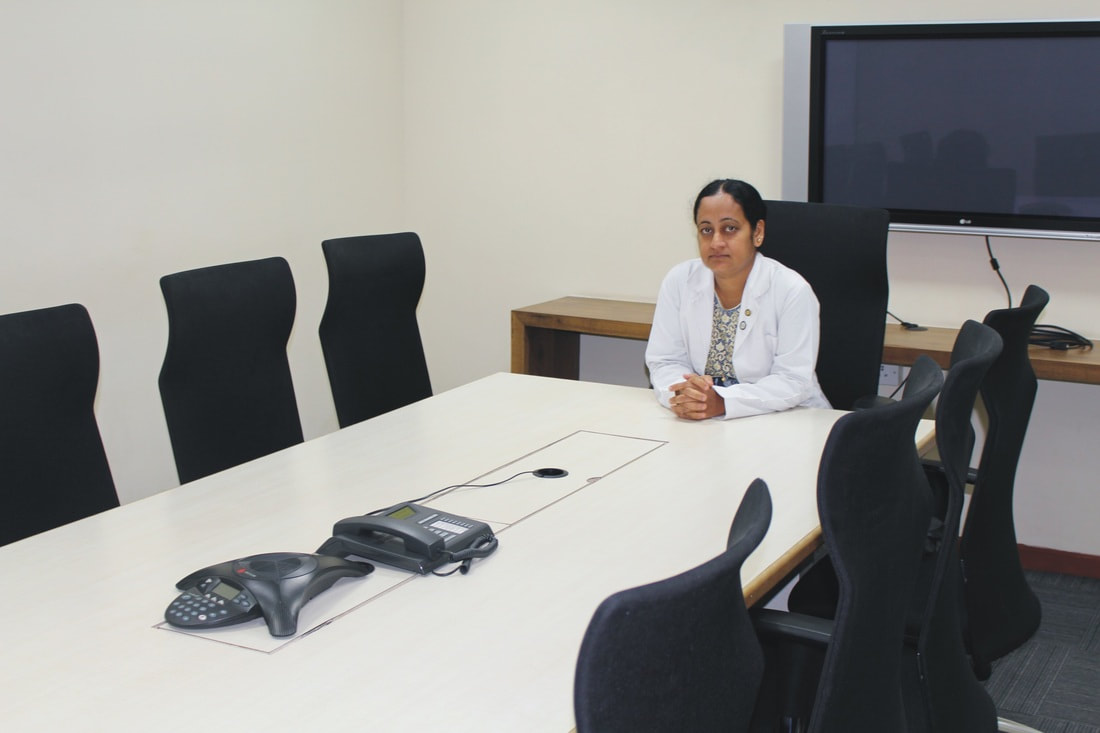 In an Age to Run & Play these Kids are Going Astray with Increased Screentime In an Age to Run & Play these Kids are Going Astray with Increased Screentime 21st century is the age of technology and the adorable MTS baby ad (the baby starts using technology right after getting out of the mother’s womb) would be a reality-don’t you think (or rather fear!) so at least in a couple of decades? Kids and adolescents grow up surrounded by digital information and entertainment with the means of computers, tablets, smartphones and televisions. These young people spend more time online rather than spending quality time with family and friends. The digital world is full of amazement and surprises for these kids who love interacting with virtual friends, make friends without inhibitions as they need not bother about their physical appearance and have lots of fun playing games to which they get addicted to in course of time. The world outside is cunning and business minded. It loves to exploit the children’s weaknesses by developing sensational games that kids would love to explore, play repeatedly and finally shell out money purchasing different apps or unlocking levels. The days of football and basketball are fast disappearing as kids lock themselves in their rooms focused on the tablet or laptop for hours together. This indeed raises the concerns of health professionals and parents who are of the concept that prolonged screen time is bad for health especially with the magazines and the media reporting their harmful effects every other day on sleep, diet, social life and family life. But research studies are not many as many of them mostly include negative behavior such as snacking, sedentariness and socioeconomic grouping too as factors in their study. We do have evidences that increased screen time is associated with obesity, decreased time available for exercise, increase in energy intake and reduction of metabolic rate. There are also side effects such as irritability, mood disorders and poor cognitive performance all of which affect academic performance. Such factors affect quality of life and there have been several guidelines proposed for reducing screen time-the American Academy of Pediatrics in 2015 recommended limiting screen time for children aged 2-5 years to an hour everyday and for those above 6 years it is up to the parents to rationally decide upon a fixed screen time for their children. The Canadian Pediatric Society too came up with similar guidelines in 2017. While time and again we have been insisting on limiting or preventing infants and toddlers from being introduced to gadgets and technology it is depressing to realize that the use of media has only been rising steadily for the past 5-10 years. Kaiser Family Foundation Studies report in 2010 suggested that behavior of 2,000 8-18-year-old kids showed that most of them spent around 7.5 hours daily on media where around 4.31 hours was spent viewing television, 2.31 hours listening to music, 1.29 hours on computer and 1.13 hours playing video games. Yet another study found that youngsters aged around 18 years spent nearly 40 hours every week accessing Internet from home computers. In order to exactly find the effect of these things on kids a review of reviews (RoR) was taken on children and young people (CYP). Review of Reviews The review study question was ‘What is the evidence for health and well-being effects of screen time in children and adolescents?’ Based on different criteria finally 13 studies were included in the review-6 of them considered the association of screen time with body composition measures (including obesity), three for diet and energy intake, seven for mental health related outcomes like self-esteem and quality of life, four for cardiovascular risk, four for fitness, three for sleep and one for pain and one for asthma. We will take up each of these one by one. Body Composition: Most of them were associated with television screentime. Most of the studies unanimously reported increased screen time with increase of overweight/obesity over time. Carsen et al reported that increased adiposity measure was associated with computer screentime in almost 3/4th of the studies but the same team could not find any association between video/videogame screentime and adiposity. In another study Ekris et al reported that across 6971 participants from five prospective cohorts BMI at follow-up was not linked to every added hour of computer viewing. While there is moderate evidence that higher screen time is associated with greater adiposity there is not enough evidence for an association with overall screen time or non-television screentime. Diet & Energy Intake: Screentime in the absence of food commercials still resulted in elevated dietary intake and television screentime increased the consumption of palatable energy-dense foods while evidences were weak for video game screentime. Costigan et al reported that screentime did not promote healthy eating behavior, Pearson and Biddle showed that television screentime was associated with total energy intake and energy dense drinks. Here again, we have moderate evidence linking screentime with high energy intake and less healthy diet quality. Mental Health & Well-being: There was moderate association between anxiety and screentime while positive association between screentime and depression. High rates of depression were linked to ≥2 hours of screentime daily. Carsen et al reported that screentime and behavioral problems were positively associated in 24 studies. There was a positive association between screentime and poorer psychological well-being and quality of life. Physical Health: There was weak association between screentime and cardiovascular risk factor generally. While Costigan et al reported that higher screen time was associated with higher physical activity two other reviews found an inverse association between both. CYP cognition and development were examined in three medium-quality reviews. LeBlanc et al conveyed that there was low-quality evidence that television screentime had negative impact on cognitive development in young children. Many studies acclaimed that there was weak evidence that greater television time was associated with poorer educational attainments. Sleep: There was weak association between screentime and sleep outcomes in all types of media exposure including computer, video screentime and mobile phone screentime. Pain was studied in very few studies and those showed a weak association between screentime and increase in neck/shoulder pain. Likewise, there was insufficient evidence linking asthma with television screentime. This research shows that increased screentime was positively linked with a variety of health harms for CYP having strongest evidence for adiposity, unhealthy diet, depressive symptoms and quality of life. Association between screen time & psychological well-being We have a study where the effects of screentime on psychological well-being was specifically measured on 44,734 children and adolescents 2 years of age and older in the US in the National Survey of Children’s Health (NSCH) conducted in 2016. All the children were between 2 and 17 years of age and were grouped into four categories: Preschoolers 2-5 years old (9361), elementary schoolers 6-10 years old (10,668), middle schoolers 11-13 years old (7555) and high schoolers 14-17 years old (12,753). Two questions on screentime were asked to caregivers (who are the participants here):
Studies show depressing results in terms of life skill development in children. More number of children between 2 and 5 years of age could use technology in a better way than demonstrate skills such as riding a cycle, swimming or tying their shoelace. Lack of enough playtime with traditional toys such as building blocks showed that language development is affected greatly. When toddlers (between 18 and 30 months of age) played building blocks with their caretaker, these toddlers showed improved language scores comparatively. Also, children who view television are captured by the attractiveness of the visual images and colors but mostly forget to pay attention to the storyline thereby failing to learn much from these fictional TV episodes. More time spent viewing per day at ages one and three were associated with attention problems at age seven. Excessive use of television, video games and computer was linked to excess use of tobacco and cigarettes, early sexual debut, sleep deprivation especially when there is a television set in the bedroom (these kids score 7-8 points lower in math tests compared to those without a TV in the bed room), violent behavior not only that’s physical but also verbal, depressive symptoms and anxiety. A study from UCLA showed that screentime was associated with identifying emotional cues of individuals. Study compared a group of people in a nature camp who went without screentime for five consecutive days to another group who were bound to attend the camp later. The first group of people displayed improved emotional cognitive abilities just five days after the camp. The increase in screentime impairs social skills and affects the ability of people to understand emotions of other people. Screentime definitely impairs social development, emotional intelligence, cognitive improvements and overall quality of life. Kids lose the personal touch with other individuals and fall in love with the virtual world ignoring the presence of the people around him/her. It is 100% essential to control screen time in children and help them enjoy a better quality of life. Research Effects of screentime on the health and well-being of children and adolescents: https://bmjopen.bmj.com/content/9/1/e023191 Association between screentime and lower psychological well-being among children and adolescents: https://www.ncbi.nlm.nih.gov/pmc/articles/PMC6214874/ The impact of media use and screen time on children, adolescents and families: https://www.acpeds.org/the-college-speaks/position-statements/parenting-issues/the-impact-of-media-use-and-screen-time-on-children-adolescents-and-families Comments are closed.
|
AVOID FRAUD. EAT SMART+91 7846 800 800
|
- Home
- Written Testimonials
- Consult
- Clinics
- Blogs
-
Diet & Nutrition
- Diabetes Reversal
- IVF IUI not needed for PCOS PCOD Infertility
-
Medical Nutrition
>
-
Disease & Conditions
>
- Infertility | PCOS
- Diabetes Mellitus
- Cholesterol
- Hypothyroid
- Kidney Problems
- Hypertension
- Cardiovascular Diseases
- Liver Diseases
- Gastro intestinal disorder
- Cancer
- Metabolic Disorders
- Orthopedic Disorders
- Eating Disorders
- Dietary Recall
- Weight Record Filled By Clients
- Online Payment Transaction Details
- Online Clients Weight Check Form
- Our Program Package Service Charges
- Weight Record 2017 Clients
- Measurements sent by Clients
- Terms & Conditions Of Payment
- Thanks. Your Form is Submitted
- Video Testimonials
- Lifestyle & Wellness
- Lifestyle & Wellness Blog
- Allergy & Intolerance
- Weight Loss / Gain
- Weight Loss / Slimming Blog
-
Disease & Conditions
>
- Life Cycle Nutrition >
- Sports Nutrition >
- Integrity in Nutrition
- Knowledge Centre
© COPYRIGHT 2022. ALL RIGHTS RESERVED. FRST HEALTHCARE PVT LTD.
Dr. Nafeesa Imteyaz of First Eat Right clinic, is the Best Dietitian Nutritionist in Bangalore. Best Dietitian Nutritionist in Pune. Best Dietitian Nutritionist in Hyderabad. Best Dietitian Nutritionist in Chennai. Best Dietitian Nutritionist in Mumbai. Best Dietitian Nutritionist in Delhi. Best Dietitian Nutritionist in Kolkata.



